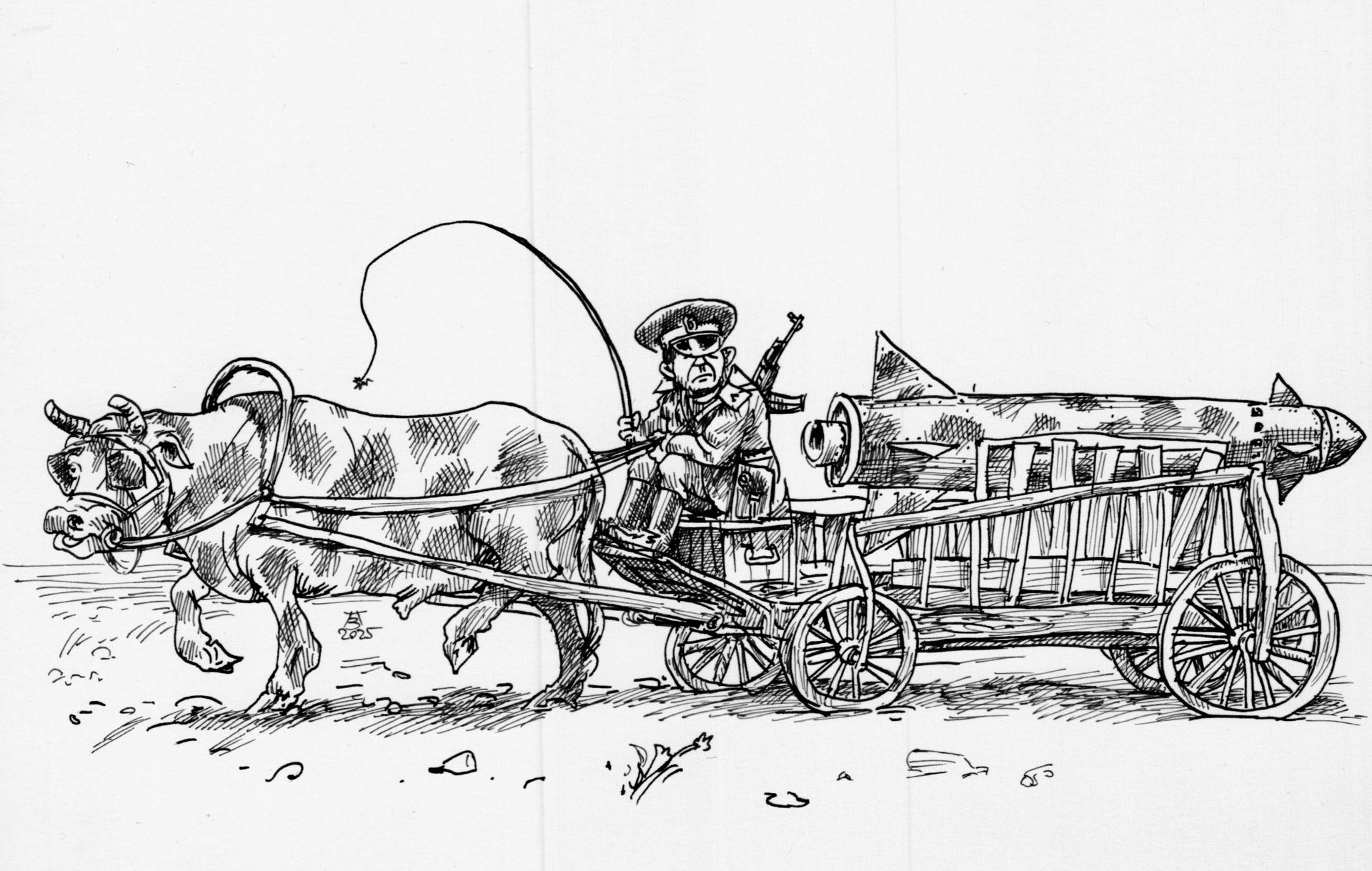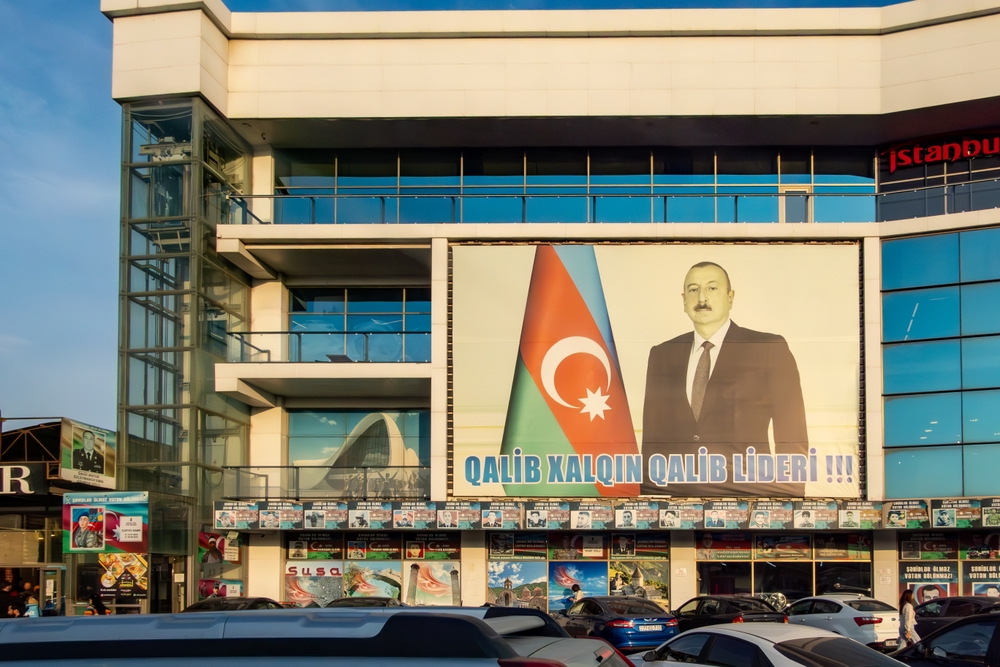DEAR READER,
Russia tested NATO last week with a pair of drone incursions: 19 crossed into Polish airspace, three were shot down, and another breached Romania’s airspace overnight. More on that in our top stories.
For this week’s expert opinion, we are zooming in on Moldova. President Maia Sandu says Moscow is targeting voters abroad ahead of the September 28th elections, using online propaganda, Russian Orthodox priests, and the Matryoshka bot network to spread fake content. We asked Moldovan journalist Mihail Nesteriuc to give us a closer look at what’s really going on.
Enjoy reading this week’s “brief”!
— Giorgi Beroshvili, Editor
TOP STORIES OF THE WEEK
🇵🇱 Poland greenlights NATO deployment after Russian drone incursions. President Karol Nawrocki approved the stationing of foreign forces under Operation Eastern Sentry, a NATO mission to bolster the alliance’s eastern flank following this week’s violations of Polish airspace. The operation will bring in French Rafales, German Eurofighters, Danish F-16s, a frigate, Dutch Patriots, and more, creating multi-layered air defenses against drones, missiles, and aircraft. Poland called the drone incident an “unprecedented act of aggression”. Safe to say Warsaw isn’t buying the “it was not us” explanations from Russia.
🇷🇴 There was a drone incursion in Romania too. Days after Warsaw shot down multiple Russian drones, Bucharest says one of Moscow’s Shahed drones crossed into its airspace during attacks on Ukraine’s Danube region. Romania scrambled F-16s and tracked the drone, but chose not to fire, citing collateral risk (critics at home weren’t thrilled). Zelensky called the breach “an obvious expansion of the war”. Russia, of course, called the incident a Ukrainian provocation. Worth noting that Donald Trump said tougher sanctions are on the table — if NATO stops buying Russian oil. That brings us to…
🇺🇸 Trump warned the EU about Russian oil. US Energy Secretary Chris Wright urged EU states that are still hooked on Moscow’s fossil fuels (like Hungary and Slovakia) to cut ties and buy American LNG instead. “We want to displace all Russian gas,” Wright said, calling it key to strangling Putin’s war chest. He also pushed Europe to swap out Russian-backed nuclear projects for US or EU tech, just as the EU’s top court smacked down Hungary’s state aid for its Rosatom-linked Paks II plant. Orbán, a close Trump ally, isn’t budging on his pro-Russia energy stance.
🇦🇱 Albania just became the first country to appoint an AI minister. PM Edi Rama unveiled his new cabinet this week, introducing Diella, a digital assistant tasked with overseeing public procurement to curb corruption, nepotism, and conflicts of interest. Already active on the state’s e-Albania portal, Diella is now getting a formal ministerial title. The move came alongside political drama, including the dismissal of Tirana’s corruption-charged mayor and a reshuffle critics say highlights Rama’s one-man style of governance.
🇧🇾 Belarus frees political prisoners. Fifty-two prisoners were released from Belarusian jails on Thursday and sent to Lithuania after Donald Trump appealed to Minsk. Many were near the end of their sentences and told reporters they would have preferred to stay in Belarus rather than face forced relocation, while some, like opposition figure Mikola Statkevich, returned home despite the risks of re-arrest. Opposition leader Sviatlana Tsikhanouskaya thanked Trump but called the moves “not real freedom,” urging that ex-prisoners be allowed to remain in Belarus.
EXPERT OPINION
Will Moldova stay pro-European after September 28th?

Moldova has become a crucial piece on the European chessboard, caught between the strategic ambitions of Moscow and the enlargement logic of Brussels. Once a quiet post-Soviet republic on Europe’s margins, the country now stands at the center of a contest that will shape the region’s security and political order. For Russia, Moldova represents both a vulnerable flank and part of the imperial vision of Novorossiya. For the European Union, it is a test case for whether enlargement can provide stability in the shadow of war. As Moldovans prepare to elect a new parliament on September 28, the stakes are unusually high: the outcome will determine not just who governs in Chișinău, but also whether the country continues on its fragile European path.
On 1 September 2025, during a briefing of Russia’s Chief of the General Staff, Valery Gerasimov, observers noticed a map that once again illustrated Moscow’s imperial ambitions. The map, published by the Russian Ministry of Defense, showed Ukraine stripped of access to the Black Sea: the Donbas, Zaporizhzhia, and Kherson absorbed into Russia, while Odesa and Mykolaiv were erased from Ukraine’s borders. This visual was not only a symbolic provocation but also a reminder of the Kremlin’s long-standing project of Novorossiya — an imperial construct designed to experiment with and dominate various ethnic groups. For Moldova, which lies just west of Odesa, the implications are grave: any Russian attempt to seize Ukraine’s southern coast would place Moldova directly in Moscow’s crosshairs.
At the same time, the war in Ukraine has reshaped EU enlargement policy, compelling Brussels to consider the integration of Eastern Partnership states with new urgency. Moldova, alongside Ukraine, has become central to debates about the future architecture of Europe. The country is not only a frontline state resisting Russian pressure but also a potential logistics hub for reconstruction and trade flows once the war subsides. In this sense, Moldova’s geopolitical significance extends far beyond its borders — it is a test of whether the EU can secure and stabilize its eastern frontier.
Internally, Moldova’s political landscape is defined by competition between the governing Party of Action and Solidarity (PAS) and a fragmented opposition, some of whose leaders are accused of having links to Moscow. Recent polls suggest that PAS remains the strongest single force but risks losing its outright majority. This would force coalition negotiations, a familiar but contentious feature of Moldova’s parliamentary system. For many observers, the outcome will determine whether reforms launched since 2021 continue at pace or whether Moldova returns to the gridlock that characterized much of the 2010s.
PAS claims credit for advancing justice reform, closer integration with the EU, and greater energy security following Russia’s gas cut-offs. Yet the record has been mixed. Even President Maia Sandu has acknowledged missteps in judicial reform. Critics point to the summer 2025 appointments to the Constitutional Court as a test case: former justice minister and PAS vice president Sergiu Litvinenco was named judge, while another nominee, Ion Malanciuc, was the only candidate in a limited selection process. Civil society groups argued that these choices lacked transparency and risked politicizing the Court. Such episodes illustrate Moldova’s wider challenge: balancing EU-driven reforms with the need for institutional accountability, pluralism, and renewed public trust.
What is at stake?
At stake in Moldova’s parliamentary elections is not only the balance of power in Chișinău but also the country’s future orientation. As EU Commissioner for Enlargement Marta Kos underlined during a recent visit, a victory for pro-Russian forces could halt the reforms required by Brussels and risk placing Moldova on a “Georgian scenario” — stalled accession and suspended European assistance. “If reforms stop, support stops,” Kos said, pointing to EU programmes that currently subsidize energy bills, infrastructure, and social projects. Her remarks also drew attention to the presence of politicians who claim to be pro-European while quietly undermining integration efforts.
European leaders have sought to counterbalance these risks with tangible incentives. Politico reported in mid-August that Brussels was considering advancing Moldova’s EU accession track separately from Ukraine’s, a symbolic move that could boost pro-EU forces before the vote but risk unsettling Kyiv. Meanwhile, the European Commission recently delivered an additional €18.9 million under its Reform and Growth Facility, highlighting Moldova’s progress in justice and energy reforms and calling on European businesses to invest. These elections will therefore decide whether Moldova continues on a reformist, EU-backed trajectory, or whether external influence and domestic discontent push it away from Europe at a decisive moment.
— Mihail Nestoriuc, Journalist
As a member of New Eastern Europe, you’ll enjoy unlimited access to premium articles, our full archive, downloadable PDF issues, and our podcast. Choose digital-only or add print delivery, and join a community that values independent, in-depth analysis.
OPPORTUNITIES OF THE WEEK

The programme for the 2025 IPI World Congress and Media Innovation Festival is now live!
Get your ticket today and join one of the biggest press freedom and journalism events of 2025. The registration closes on October 1!
Under the theme “Defending the Future of Free Media”, the event gathers the global journalism community to ask: How can we work together to defend the value of independent journalism and ensure media freedom remains a pillar of democracy in the decades ahead?
With participants already confirmed from over 75 countries and more than 100 speakers, the 2025 IPI World Congress and Media Innovation Festival is shaping up to be one of our most global and collaborative editions yet.
Join panels, workshops, lightning talks, the IPI Awards ceremony, special partner events, and more. Explore the full programme for all current sessions through the IPI’s website, and check back often as new details are added.
ARTICLES OF THE WEEK
CARTOON OF THE WEEK

Do you want to see more of Andrzej’s drawings? Check out our dedicated gallery page featuring his cartoons here.
GOT THOUGHTS? WE WANT TO HEAR THEM
It only takes 2–3 minutes to fill out the form, and we genuinely love reading every single response. Share your feedback!






